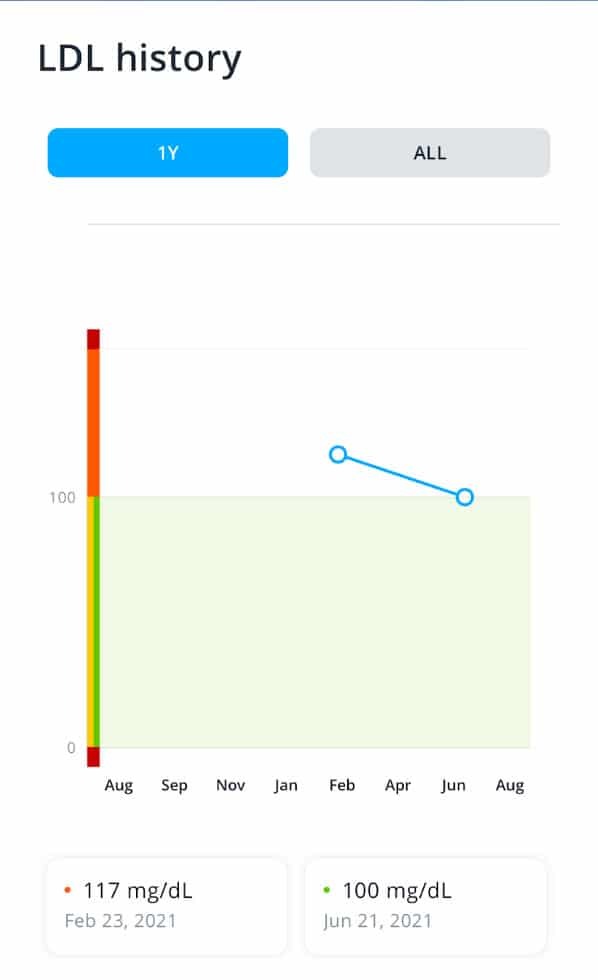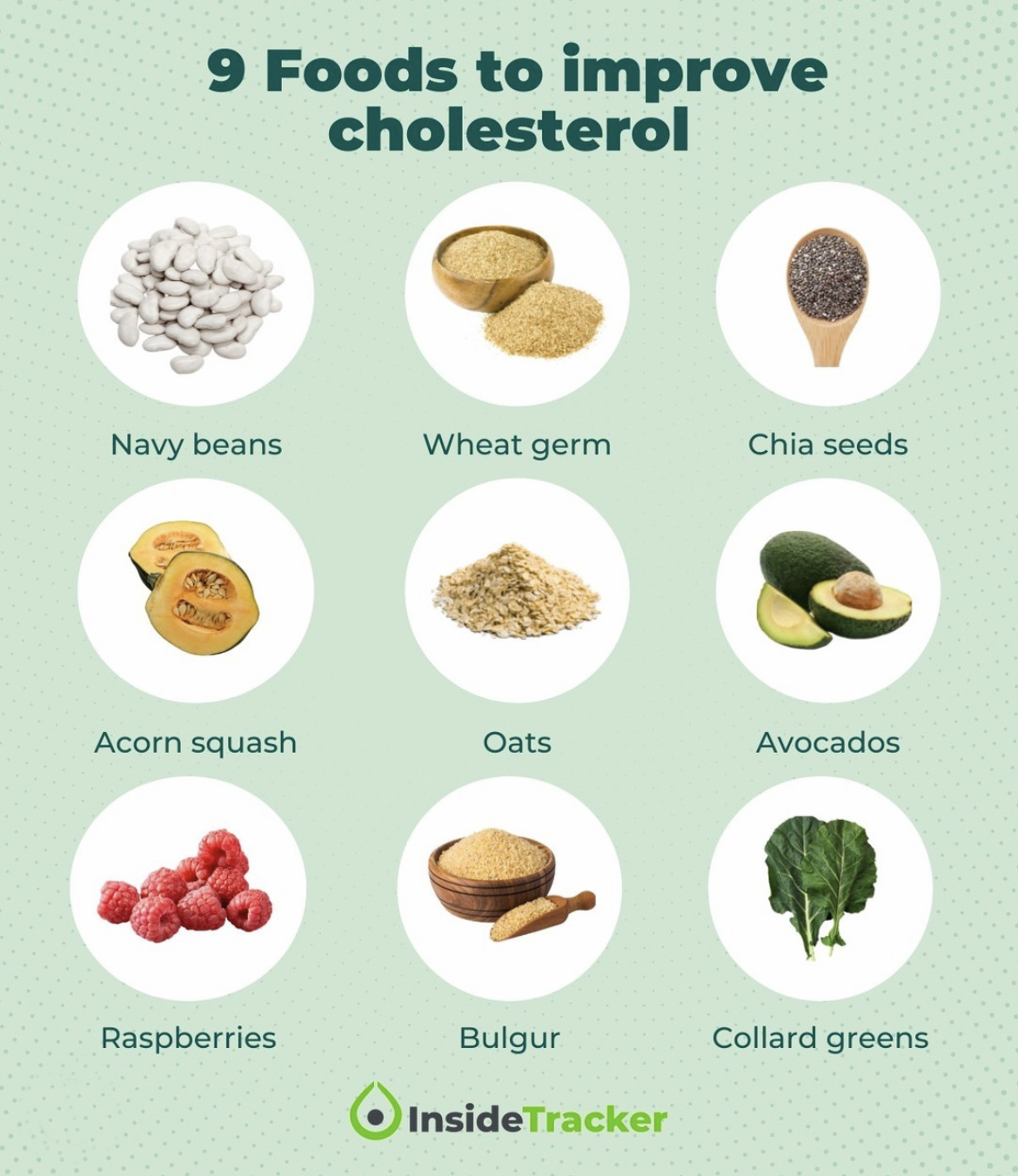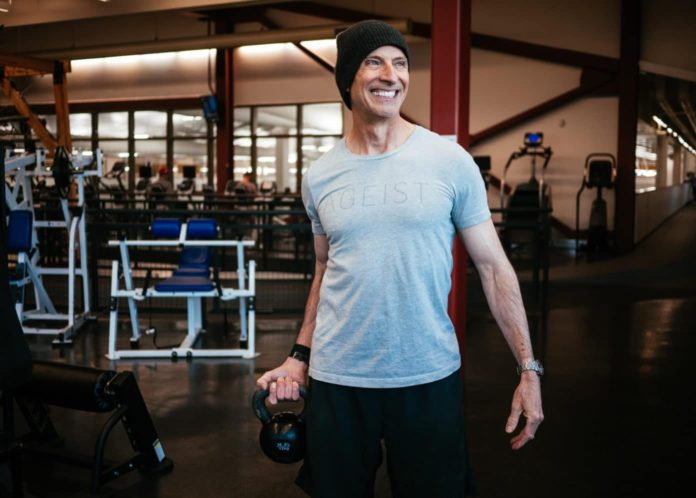This being Heart Health Awareness month, we are checking in on the topics of food, bio-markers and overall cardiac health. More people will die of coronary diseases than from any other cause, and me being 63, anything to do with heart health is top of mind around here. Last year, using the guidance of the InsideTracker platform, I reduced my bad LDL cholesterol from 117 to 99 in just 4 months. I did this just using the personalized food and supplement suggestions given to me by the InsideTracker platform. By knowing what my inner health was, and following the easy, actionable suggestions on optimizing it, I made a big impact on my long-term health. Keeping track of my ever-changing bio-markers that impact my heart health, such as my cholesterol, blood sugar and cortisol, are ways I know I am staying on track. We can only improve what we can measure.
Getting to know our bodies is a lifetime’s journey. We change with time. With the correct guidance, we can adjust our food and behaviors to make sure we are doing the best we can for the person we are today. At an earlier age, we could be more casual with what we ate and how we took care of our fitness. Now, we probably pay more attention to these areas which, combined with the knowledge of our inner health, empowers us to make the right decisions.
To help us better understand how cholesterol affects our health, we reached out to an expert on the subject, Michelle Darian, MS, MPH, RD.
Click here to receive a 20% on all InsideTracker products.
HDL, LDL, and Triglyceride Levels
How do HDL, LDL and triglyceride numbers predict an individual’s chances of having some sort of cardiac event?
High LDL cholesterol, low HDL cholesterol, and high triglyceride levels can predict poor heart health. HDL cholesterol, or the “good” cholesterol, helps reduce elevated LDL cholesterol levels by moving it out of the arteries and excreting it. Without sufficient HDL cholesterol levels, one’s LDL cholesterol levels can remain high and are associated with an increased risk of coronary artery disease. InsideTracker recommends an LDL of under 100.

Please describe what happens in the body with high cholesterol.
Prolonged elevated LDL cholesterol levels can be detrimental to the body. When LDL cholesterol oxidizes, it is more likely to make its way into the blood vessels and harden. The hardening of the blood vessels can eventually cause blockages because blood cannot flow as freely. Impairing blood flow can make an individual more susceptible to a blood clot, which can then cause a heart attack or a stroke.
How does aerobic exercise affect cholesterol levels?
Participating in regular aerobic exercise is associated with increased HDL cholesterol and decreased LDL cholesterol levels. Not only is aerobic exercise beneficial for these two heart health biomarkers, but it’s also associated with a reduced risk of cardiovascular diseases.
Diet and Cholesterol
If you eat healthy fats like olive oil, walnuts or avocado, how does it impact cholesterol? What other foods really move the needle on improving one’s cholesterol?
Foods that are rich in unsaturated fats like fatty fish, olive oil, walnuts, and avocados are particularly beneficial for increasing HDL cholesterol levels. For example, avocados are full of monounsaturated fatty acids, a type of fat that gives our cells the benefits that they need from fats, without causing plaque buildup in our arteries like their saturated fat counterparts. Research also shows that LDL cholesterol levels can also improve when foods rich in unsaturated fats are eaten in place of foods rich in saturated fats.
Foods that also move the needle on LDL cholesterol are those rich in soluble fiber. Fiber acts as a scavenger by latching onto LDL cholesterol and removing it from the body before it’s digested. Without fiber, LDL cholesterol gets taken up into the bloodstream and deposited into your fat cells or arteries. Soluble fiber-rich foods include oatmeal, lentils, beans, nuts, and flaxseed.

How quickly can one change their blood lipids by moving to a more heart healthy diet?
The timeline for improvement depends on the individual’s cholesterol levels at baseline and their adherence to a heart-healthy diet. Generally speaking, an individual can see movement in their cholesterol levels in around 1-3 months when eating more unsaturated fats, decreasing dietary saturated fat, increasing soluble fiber intake, and participating in moderate-intensity exercise.
Click here to receive a 20% on all InsideTracker products.
Can We Still Eat Chocolate?
I love chocolate, but it is saturated fat. Can I still eat it?
You can still eat any food you love, including chocolate, even if it contains saturated fat. The key here is to think about your overall daily saturated fat intake. The Dietary Guidelines for Americans (DGAs) recommend consuming less than 10% of calorie intake from saturated fats. For an individual who eats 2,000 calories per day, roughly 20g of saturated fat. Therefore, if you love chocolate, you can prioritize this form of saturated fat and minimize other potential sources elsewhere.
What’s more, dark chocolate also contains polyphenols that are associated with reduced inflammation levels. Lower levels of inflammation can be cardioprotective.
Thank you, Michelle. I’m very conscious of my heart-based bio-markers and am also a big time cacao fan so good to know that, in moderation, my chocolate indulgence can continue!
InsideTracker is an easy-to-use science-based platform that I use to stay on top of my inner health. It uses easily accessible commercial labs, the same ones doctors use. They can even come to your home to do a quick blood draw. My results come to me on a very easy-to-understand app, where I will receive simple, actionable food-based suggestions to improve my health, and to also track my results over time. I am particularly fond of their InnerAge product, which gives me a simple single number to understand how well I am aging, and how I can improve. InsideTracker has been a key component of my wellness for some time, and I recommend InsideTracker to all my friends. Click here to receive a 20% discount on all their products.


